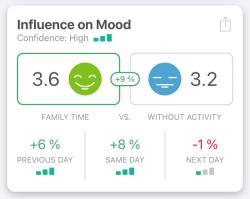What are three character traits?
Character traits are enduring qualities or attributes that define an individual's behavior, actions, and attitudes. They contribute to shaping a person's personality and are often used to describe someone's moral, emotional, and social characteristics. Here are three character traits, along with insights and examples for each:
Empathy:
- Insights: Empathy is the ability to understand and share the feelings of others. It involves being sensitive to others' emotions and perspectives, and it often leads to compassionate and supportive behavior.
- Examples:
- A friend who listens attentively and offers support when you're going through a tough time demonstrates empathy.
- A healthcare professional who shows genuine concern for a patient's well-being and tries to understand their feelings exhibits empathy.
Resilience:
- Insights: Resilience is the capacity to bounce back from adversity, setbacks, or challenges. It involves adapting positively to difficult situations, learning from experiences, and maintaining mental and emotional strength.
- Examples:
- Someone who faces a career setback but remains determined to pursue their goals with renewed vigor demonstrates resilience.
- A student who encounters academic challenges, seeks help, and persists in their studies despite difficulties shows resilience.
Integrity:
- Insights: Integrity refers to the quality of being honest, ethical, and having a strong moral character. Individuals with integrity adhere to principles, act with honesty and fairness, and are consistent in their values.
- Examples:
- A person who refuses to engage in dishonest practices, even when tempted, displays integrity.
- A leader who takes responsibility for their mistakes, acknowledges them openly, and works to rectify them demonstrates integrity.
These character traits are just a few examples among many, and individuals often possess a combination of various traits that contribute to their unique personalities. Developing positive character traits is a lifelong process that involves self-awareness, intentional effort, and continuous growth. These traits play a crucial role in shaping how individuals interact with others, navigate challenges, and contribute to their communities.
What are three distinct character traits that significantly impact behavior and personality?
Three distinct character traits that significantly impact behavior and personality are:
Conscientiousness: This trait reflects an individual's tendency to be organized, responsible, and planful. Highly conscientious individuals are more likely to set goals, follow through on commitments, and delay gratification. They are also less likely to engage in impulsive or risky behavior.
Agreeableness: This trait reflects an individual's tendency to be cooperative, trusting, and helpful. Highly agreeable individuals are more likely to get along with others and avoid conflict. They are also more likely to be compassionate and understanding.
Neuroticism: This trait reflects an individual's tendency to experience negative emotions such as anxiety, worry, and sadness. Highly neurotic individuals are more likely to be easily stressed and to experience emotional instability. They are also more likely to be prone to physical ailments.
These three traits are not the only ones that impact behavior and personality, but they are among the most important. They are also relatively stable over time, meaning that they tend to remain consistent throughout a person's life.
Here are some specific examples of how these traits can impact behavior:
A conscientious person is more likely to:
- Set goals and stick to them
- Be organized and efficient
- Meet deadlines and commitments
- Be reliable and trustworthy
An agreeable person is more likely to:
- Get along with others
- Be cooperative and helpful
- Be trusting and forgiving
- Avoid conflict
A neurotic person is more likely to:
- Experience anxiety and worry
- Be easily stressed
- Have difficulty sleeping
- Be prone to physical ailments
It is important to note that these traits are not all-encompassing. There is a great deal of variability within each trait, and no one is perfectly conscientious, agreeable, or neurotic. However, these traits can still provide valuable insights into a person's behavior and personality.













